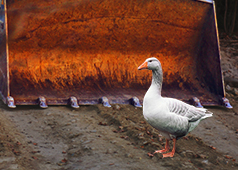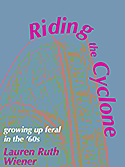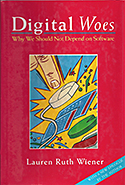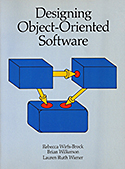Writing
A single instant can change your whole life. Mine changed on April 1, 1960, when my mother, reading in bed late at night, slumped over and died of a cerebral aneurysm. She was 42. I was six.
And so began the bizarre amalgam of abuse, neglect, and unsupervised international travel that was my personal wild ride through the sixties. A riveting first-person account, Riding the Cyclone careens like the eponymous Coney Island roller coaster from sardonic wisecracks to gut-wrenching brutality as it tells the story of a child’s struggle to grow up in a world of capricious violence and unhinged delusion.
And so began the bizarre amalgam of abuse, neglect, and unsupervised international travel that was my personal wild ride through the sixties. A riveting first-person account, Riding the Cyclone careens like the eponymous Coney Island roller coaster from sardonic wisecracks to gut-wrenching brutality as it tells the story of a child’s struggle to grow up in a world of capricious violence and unhinged delusion.
In 1999, I began a music diary to capture the soundtrack of my life. And because the Web was so shiny and new, I decided to keep it online.It was great while it lasted; maybe I'll try it again someday. For fans of world music, here are the Mongrel Music archives.
Smartphones, self-driving cars, fake news, identity theft, cyberstalking… it was all in the future once.In the early '90s, when the World Wide Web consisted of two nodes connecting CERN with Stanford and most people had yet to encounter a computer, I started growing concerned about certain ill-informed and hazardous decisions I saw being made: keeping sensitive data on wide-open systems, putting cars' brakes under software control, committing heaps of public money to excessively ambitious software projects (remember SDI?). Okay, I thought, if I explain the problem clearly, accurately, and amusingly, surely some of those decisions might become more well-informed and cautious? So, in 250 crisp clear and occasionally humorous pages, Digital Woes explained what software is, how it's made, and why mistakes and unintended interactions—bugs—are inevitable. Therefore, I suggested, humility and restraint might be in order when proposing, designing, and building digital systems. Sigh. The young can be so naïve. And the past can look so quaint, when you think about what's coming.
How many technical books are still in print after almost thirty years? Nice to think it wasn't all ephemeral. I'm still proud of Designing Object-Oriented Software, written with my colleagues Brian Wilkerson & Rebecca Wirfs-Brock (Prentice-Hall, 1990). This book grew out of work done by the Tektronix Smalltalk-80 group at Tek Labs in the '80s. It felt good to argue for the cause, to do work that mattered. With object-oriented languages now in widespread use, I guess our views prevailed. Imagine that.For software developers, this practical and down-to-earth bestseller explains the concepts of object-oriented programming, presents a process to apply those concepts, and gives examples that pull it all together.




